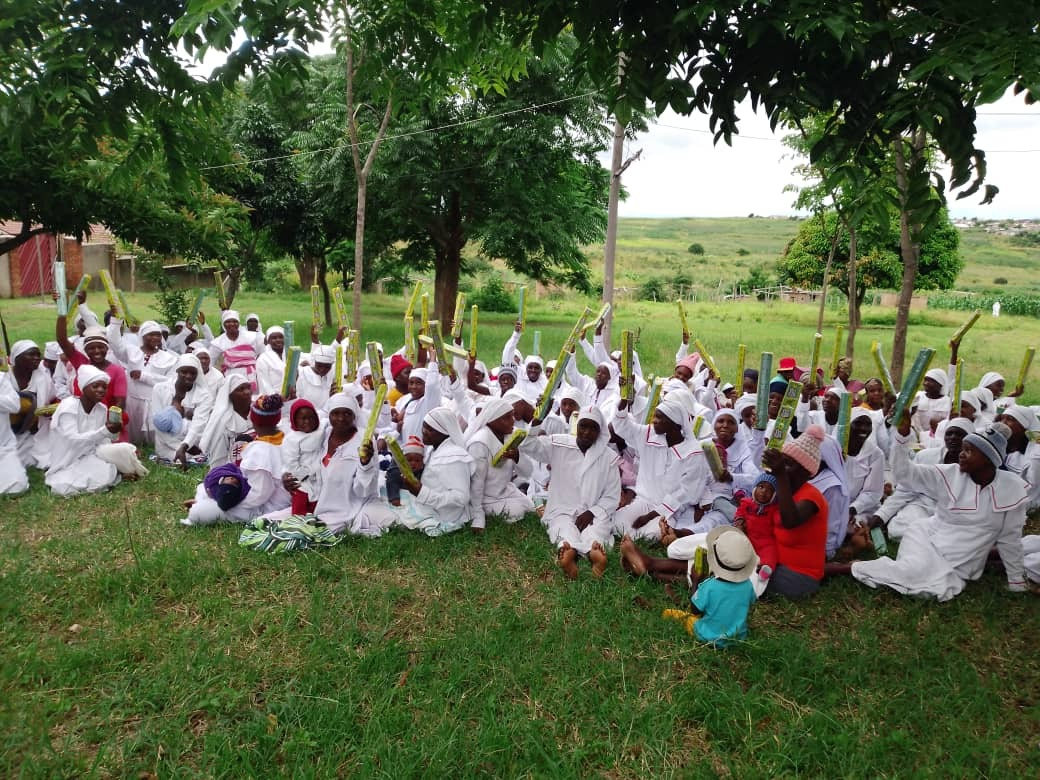 Access to sexual and reproductive health (SRH) information and services is critical for young girls and boys. Age-appropriate sexuality education, also referred to as family life education, life skills education, protective health education, among others empower adolescents and youth to take control of their sexual and reproductive health and make informed choices.
Access to sexual and reproductive health (SRH) information and services is critical for young girls and boys. Age-appropriate sexuality education, also referred to as family life education, life skills education, protective health education, among others empower adolescents and youth to take control of their sexual and reproductive health and make informed choices.
According to Apostolic Women Empowerment Trust (AWET) youth in the Apostolic faith and other religious traditions face barriers to discussing sexual and reproductive health with their parents, who regard such discussions as taboo. Sexuality education for adolescents is prohibited and access to protective sexual products, such as condoms, is even more difficult. Additionally, AWET says that when adolescents try to access SRH services, they face stigmatization both at home and at the health facilities. Furthermore, many adolescent girls do not have access to even the most basic sexual reproductive health information, such as the significance and management of their menstrual periods. Menstruation is associated with high levels of absenteeism.
Faith to Action Network in partnership with ACT Ubumbano has been working with Apostolic Women Empowerment Trust (AWET), an Inter-Apostolic faith-based organisation which works to advance the rights of adolescents and women issues and mainstream gender in Apostolic Church activities. AWET recognizes that having access to sexual reproductive health services can be a challenge especially for youth in disadvantaged communities. These challenges include but are not limited to early and forced marriages, teenage pregnancies, and sexually transmitted infections including HIV and AIDS.
To mitigate against the SRHR challenges faced by the adolescents and youth, Faith to Action Network, ACT Ubumbano and AWET have taken the initiative to ensure that the youth receive SRH information and services through the Social Accountability approach . AWET sensitized apostolic leaders, parents, and guardians of the youth as well as youth leaders about the challenges and mitigation plans. In this project, more youth actively participated as change agents through peer-to-peer outreach to encourage access to SRHR services and currently, there are 150 youth working in communities as peer educators. Hope Dunira, AWET’s Head of Programmes said that they are not only calling them peer educators; but Information Kiosks because they have been trained to disseminate information within communities and amongst their peers.
“These youth have also managed to create safe spaces where they discuss issues and it has been made more convenient with the community feedback mechanisms we have managed to establish in the communities,” Hope added.
This initiative has sensitized over 500 adolescents from apostolic communities concerning the right to education, gender equality, and sexual and reproductive health services. It has supported the mentoring of 250 adolescents from apostolic communities in advocacy and leadership skills so that they can become advocates, leaders, and change agents. To date, the project has managed to put the youth at the forefront to ensure that their voice is heard.
The project’s success is also based on engaging the youth in an intergenerational dialogue using social media hashtag lines #Masithethe meaning #LetsTalk; creating a safe space for them to discuss #SRH sensitive issues with their faith leaders in order to create interfaith and intergenerational alliances for young and old generations to work together to effect change in sexual and reproductive health.
The Masithethe – Let’s Talk intergenerational, interfaith project has promoted adolescents’ and youth sexual and reproductive health and rights in Southern Africa. Project countries include Eswatini, Malawi, Mozambique, South Africa, Zambia, and Zimbabwe. This project is supported by Deutsche Gesellschaft für Internationale Zusammenarbeit (GIZ) GmbH on behalf of the Federal Ministry for Economic Cooperation and Development (BMZ).



Leave A Comment